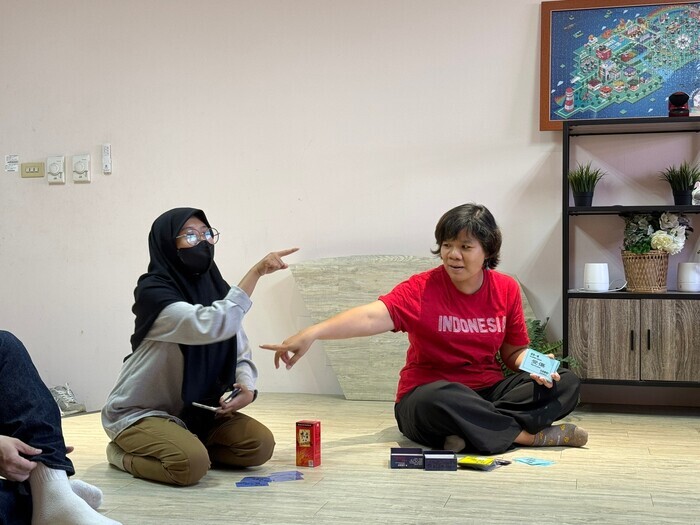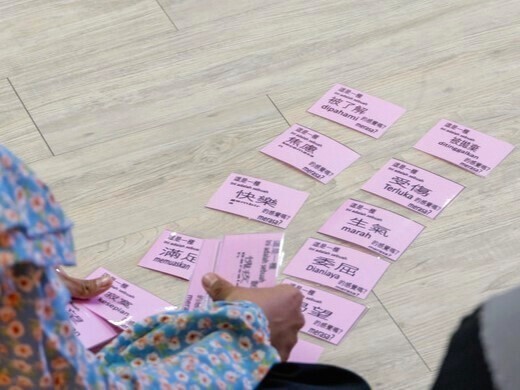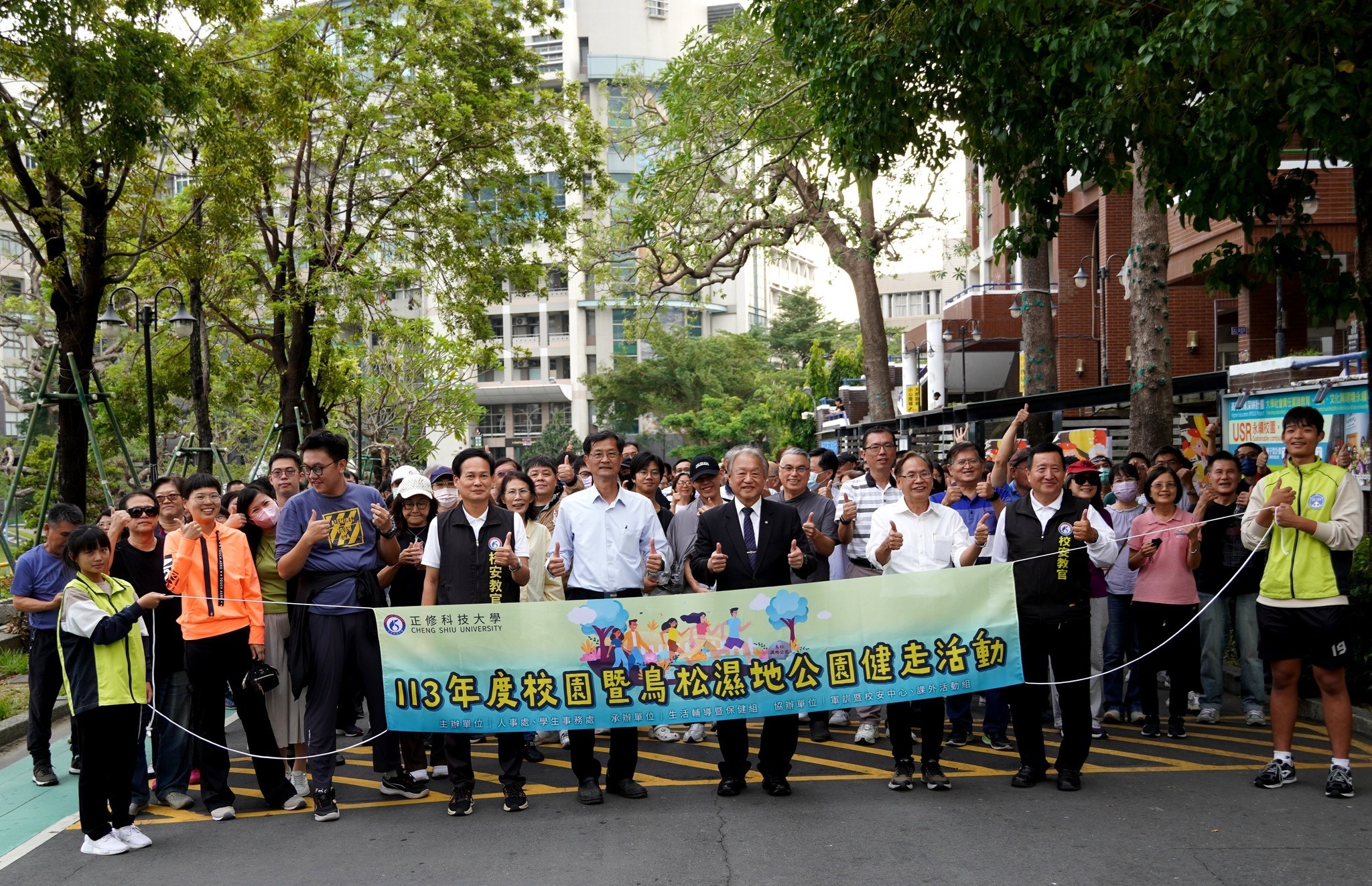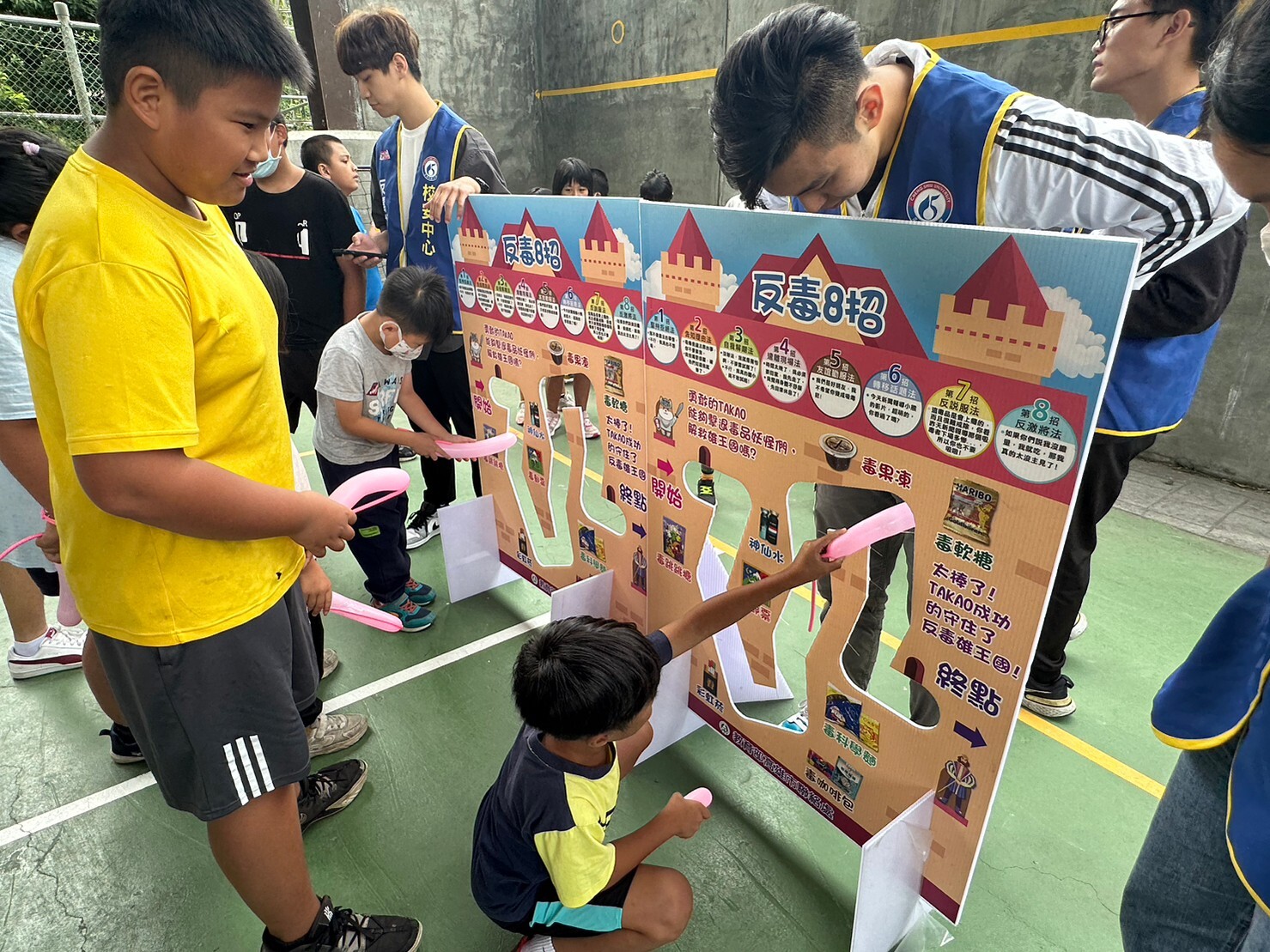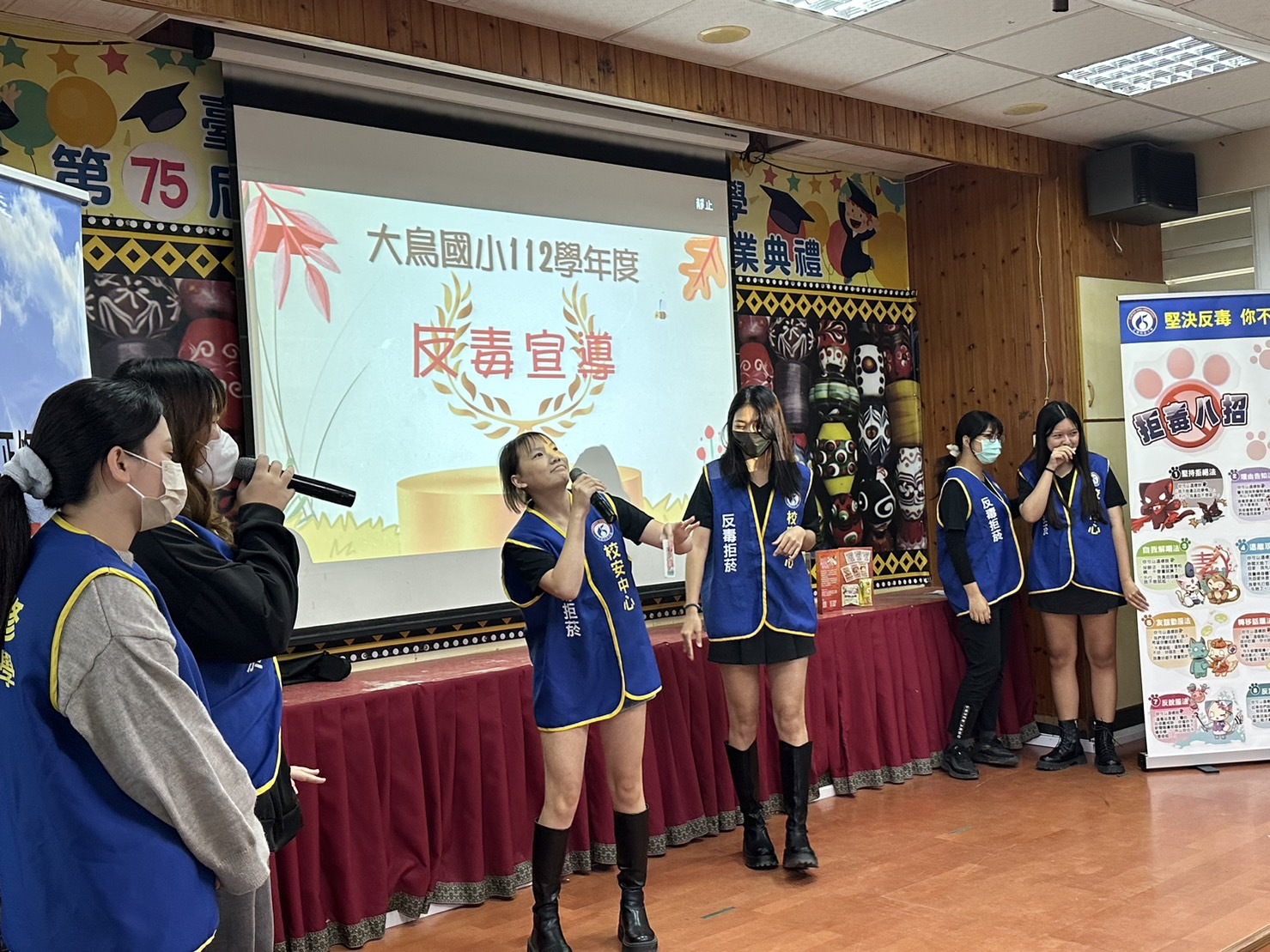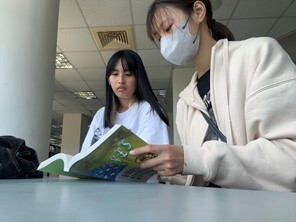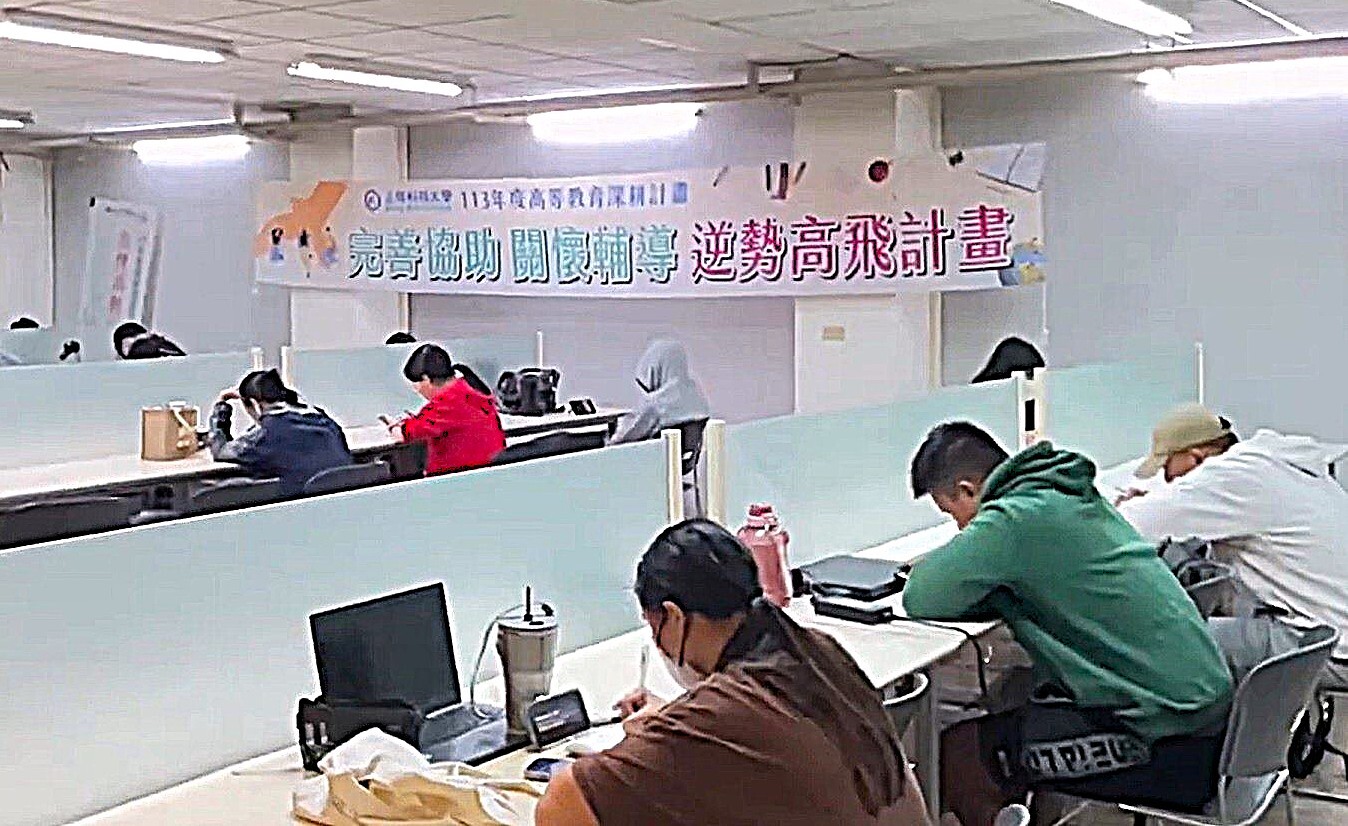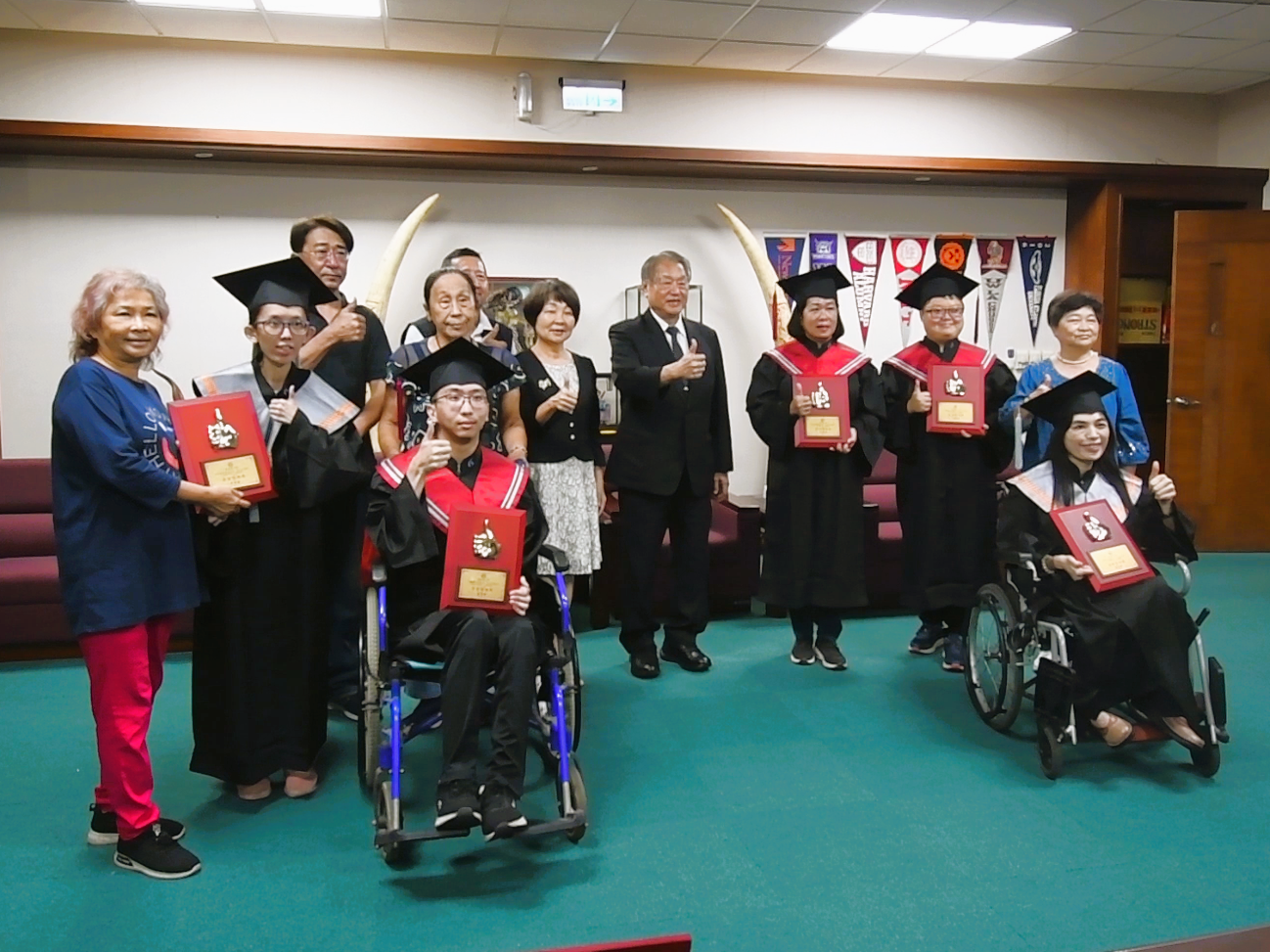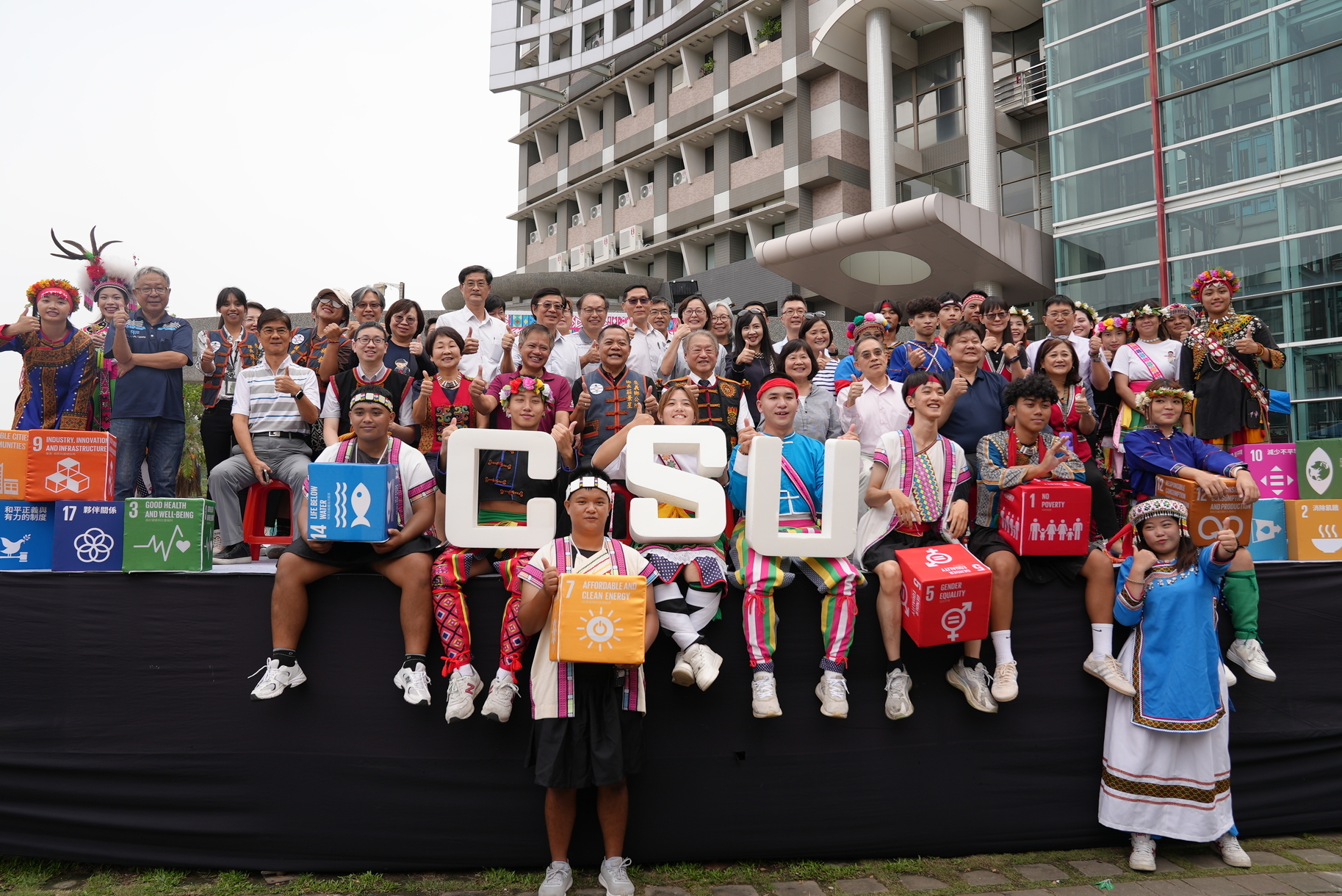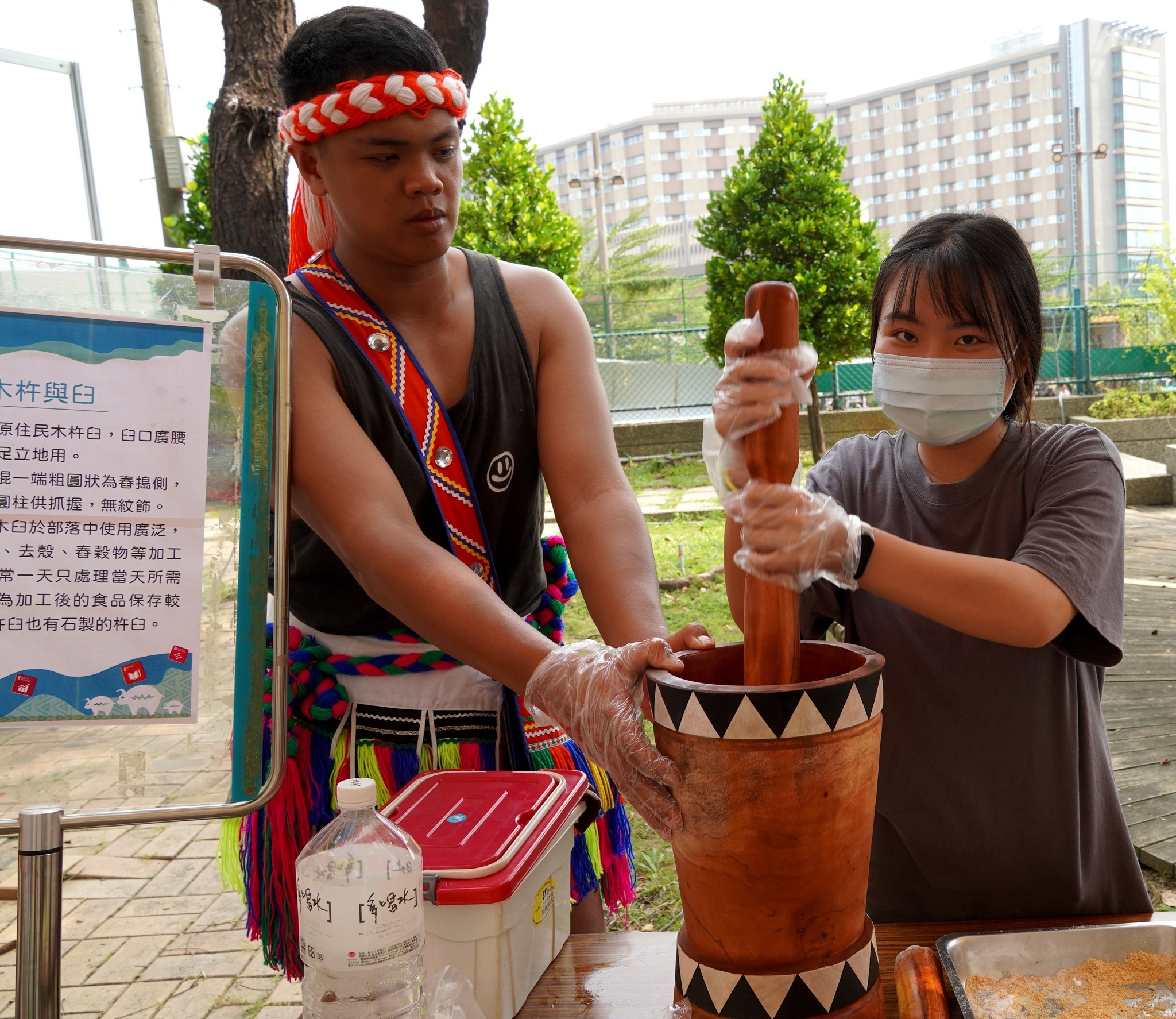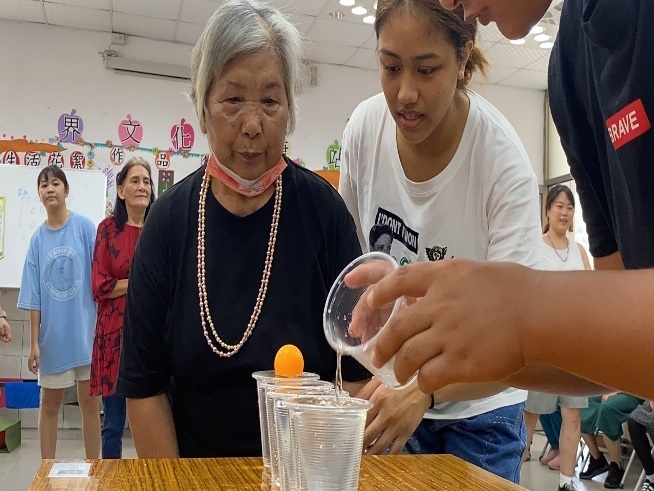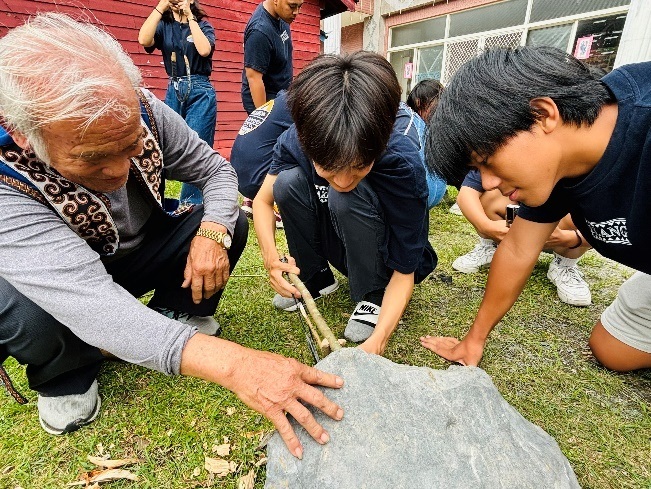Student Guidance and Educational Support Programs
Counseling and Guidance Services
Through multi-channel counseling support and emotional well-being screenings, the university identifies students’ challenges at an early stage and provides timely assistance. These services help students manage stress and emotional difficulties, strengthen their psychological resilience, and ultimately support both their academic success and personal well-being.
Counseling System for Students on Leave or Withdrawal
In the 2022 academic year, the Counseling Center monitored students with persistent absenteeism after advisor interviews. These students were placed on a follow-up list and received monthly counseling sessions to assess their academic needs and provide appropriate support. Starting from the 2023 academic year, in accordance with the university’s Guidelines for Student Leave and Withdrawal and the SOP for Withdrawal Procedures, any student expressing an intention to leave must first undergo an interview with their advisor to identify underlying reasons.
Beyond departmental support, advisors are required to complete a Withdrawal Counseling Record in the university’s online advising system. Depending on the student’s situation, cases are referred to the Counseling Center (psychological issues), the Student Activities Center (financial issues), or the Teaching Development Center (academic issues). This process ensures that students receive timely and targeted assistance, with all procedures to be completed within two weeks.
|
Mechanism |
Item |
Description |
|
Guidance |
Advisor Guidance |
The university provides advisors with diverse resources and performance evaluations to support student development. Student satisfaction surveys are conducted to assess the effectiveness of advisor support and identify needs. In the 2023 academic year, the overall satisfaction score for advisor guidance reached 4.23 out of 5. |
|
Attendance Counseling |
Advisors conduct interviews with students who accumulate excessive absences to identify underlying reasons and provide necessary support. Previously, students were interviewed after every 10 missed classes. Starting from the second semester of the 2024 academic year, the threshold was adjusted to 20 missed classes before initiating counseling. |
|
|
Counseling for Students Considering Leave or Withdrawal |
Advisors first meet with students expressing an intention to take leave or withdraw to determine whether psychological issues are involved. Cases are then referred through the advising system to the Counseling Center, where case managers conduct an initial interview and arrange follow-up psychological counseling services. |
|
|
High-Risk Emotional Screening |
Using the Ministry of Education’s online College Student Mental Health Scale as a screening tool, the university identifies students in the high-risk group for targeted counseling and follow-up support. |
|
|
Counseling and Consultation |
Psychological Counseling Services |
Social workers provide consultation and case management for students identified through emotional screenings, referrals, or self-initiated visits. Initial interviews are conducted to assess needs and potential risks, followed by appropriate arrangements such as individual counseling, psychological testing, or group therapy offered by professional counselors. To ensure service quality, all full-time counseling staff are required to undergo regular individual and group supervision. |
|
On-Campus Psychiatric Consultation |
Through consultations with psychiatrists, students receive guidance on medication and mental health education. These sessions also enable accompanying social workers and counselors to better understand students’ conditions, allowing them to provide more appropriate follow-up counseling and support. |
|
|
|
High-Risk Emotional Screening
Students identified as high-risk require intervention or intensive counseling during their studies. To provide early identification and support, the university conducts a comprehensive emotional screening for all freshmen in their first semester. The process includes three stages: assessment, follow-up, and case management, ensuring that appropriate on-campus and off-campus support networks are in place. In addition, counseling services offer a safe and supportive environment where students can express emotions, share personal difficulties, and receive professional psychological guidance and care.
|
Stage |
Assessment Stage |
Follow-up Stage |
Case Management Stage |
|
Responsible Staff |
Screening Psychologist |
Psychologists & Advisors |
Social Workers |
|
Target Group |
All freshmen |
Medium/High-risk students & those with potential crises |
Students with adjustment difficulties & high-risk cases |
|
Implementation |
Use MOE’s “College Student Mental Health Scale” for class-based screening of all freshmen. |
Identify students with potential suicide risk or significant adjustment issues. |
Social workers conduct intake interviews and connect students with counseling, family support, financial aid, or social welfare resources. |
|
Stage Goals |
Improve overall screening coverage |
Assess adaptation, confirm/exclude risks, determine case management needs |
Create crisis and case management lists, and match resources accordingly |
On-Campus Psychiatric Consultation
Each semester, the university invites an external psychiatrist to provide eight on-campus sessions (three hours each, totaling 24 hours). Appointments are scheduled in one-hour slots to ensure individualized consultation. The service aims to help faculty, staff, students, and parents gain a deeper understanding of mental health issues and psychiatric symptoms through professional medical explanations. At the same time, accompanying case managers obtain clearer insights into students’ physical and psychological conditions, enabling them to develop more comprehensive intervention and care plans.
|
Academic Year |
Psychological |
High-Risk |
High-Risk and |
Counseling for Students |
On-Campus |
|
Academic Year 2023 |
3,854 |
3,821 |
917 |
93 |
76 |
|
Academic Year 2022 |
4,034 |
3,680 |
1,070 |
356 |
118 |
|
Academic Year 2021 |
4,545 |
4,746 |
724 |
319 |
27 |
Mental Health Leave
To support students experiencing psychological distress or emotional difficulties, the university introduced a new leave category, “Mental Health Leave,” in 2024. Students may apply up to three times per semester (one day each). Starting from the third application, the system automatically notifies the advisor, who then provides counseling and assesses whether referral to the Counseling Center is needed.
Student Well-Being and Health Promotion
In compliance with Article 8 of the School Health Act, the university conducts mandatory health check-ups for all freshmen during the first week of each academic year. These screenings help identify health conditions and potential issues for early intervention and follow-up.
To strengthen health education and promote student well-being, the Office of Student Affairs annually applies for Ministry of Education funding to implement various initiatives. Programs include the Cheng Shiu Smoking Cessation Class, campus tobacco prevention campaigns, anti-drug awareness events, substance abuse prevention lectures, outreach to remote schools, and departmental anti-drug and tobacco-free advocacy. In the 2023 academic year, a total of 57 sessions were held with 10,943 student participants, significantly enhancing students’ health knowledge and awareness.
|
|
|
Activity Type |
Academic Year 2022 |
Academic Year 2023 |
||
|
Sessions |
Participants |
Sessions |
Participants |
|
|
Basic First Aid Training Course |
2 |
61 |
1 |
39 |
|
Weight Management Activities (including Healthy Diet Seminars) |
2 |
113 |
2 |
92 |
|
CPR and AED Certification Workshop (Freshmen) |
3 |
1,250 |
11 |
2,600 |
|
Community Health Promotion |
1 |
160 |
1 |
310 |
|
Campus and Niaosong Wetland Park Walking Event |
1 |
103 |
1 |
325 |
|
Tobacco Control Campaign (including Smoking Cessation Program) |
28 |
6,450 |
28 |
3,323 |
|
Drug and Substance Abuse Prevention Campaign |
31 |
7,258 |
13 |
4,254 |
|
Total |
70 |
16,692 |
57 |
10,943 |
Student Drug Abuse Prevention
The university implements a series of activities to prevent student drug abuse and block drugs from entering campus. The Spring Sunshine Volunteer Club actively promotes the “Service-Learning Model for College Student Drug Abuse Prevention,” organizing outreach campaigns at nearby junior and elementary schools. These activities raise awareness of the dangers of drugs, encourage young students to stay away from substance abuse, and support the Ministry of Education’s anti-drug initiatives. In 2024, the university organized 12 sessions with a total of 3,693 participants.
|
|
|
Student Financial Aid and Support Measures
Since 2018, the university has received funding support from the Ministry of Education to establish a comprehensive student assistance mechanism, offering multi-dimensional support programs for students from economically or culturally disadvantaged backgrounds. Starting in 2024, the university expanded its approach by promoting integrated, cross-departmental guidance that addresses learning, daily life, and career development. A total of 12 sub-mechanisms (as illustrated) were introduced to provide diverse support options, encouraging disadvantaged students to strengthen their learning capacity and broaden their opportunities.
Through the “Career Potential Star Selection” initiative, students who benefited from the support mechanisms are invited to share their learning experiences, thereby raising awareness of the assistance programs and encouraging more students to choose academic support over part-time jobs. This approach enhances both learning outcomes and future employability. On average, over 1,000 disadvantaged students receive financial aid annually under the university’s assistance programs, representing more than 50% of eligible students. Each recipient receives an average annual scholarship of NT$11,108, effectively easing financial burdens and allowing students to pursue their studies with peace of mind.
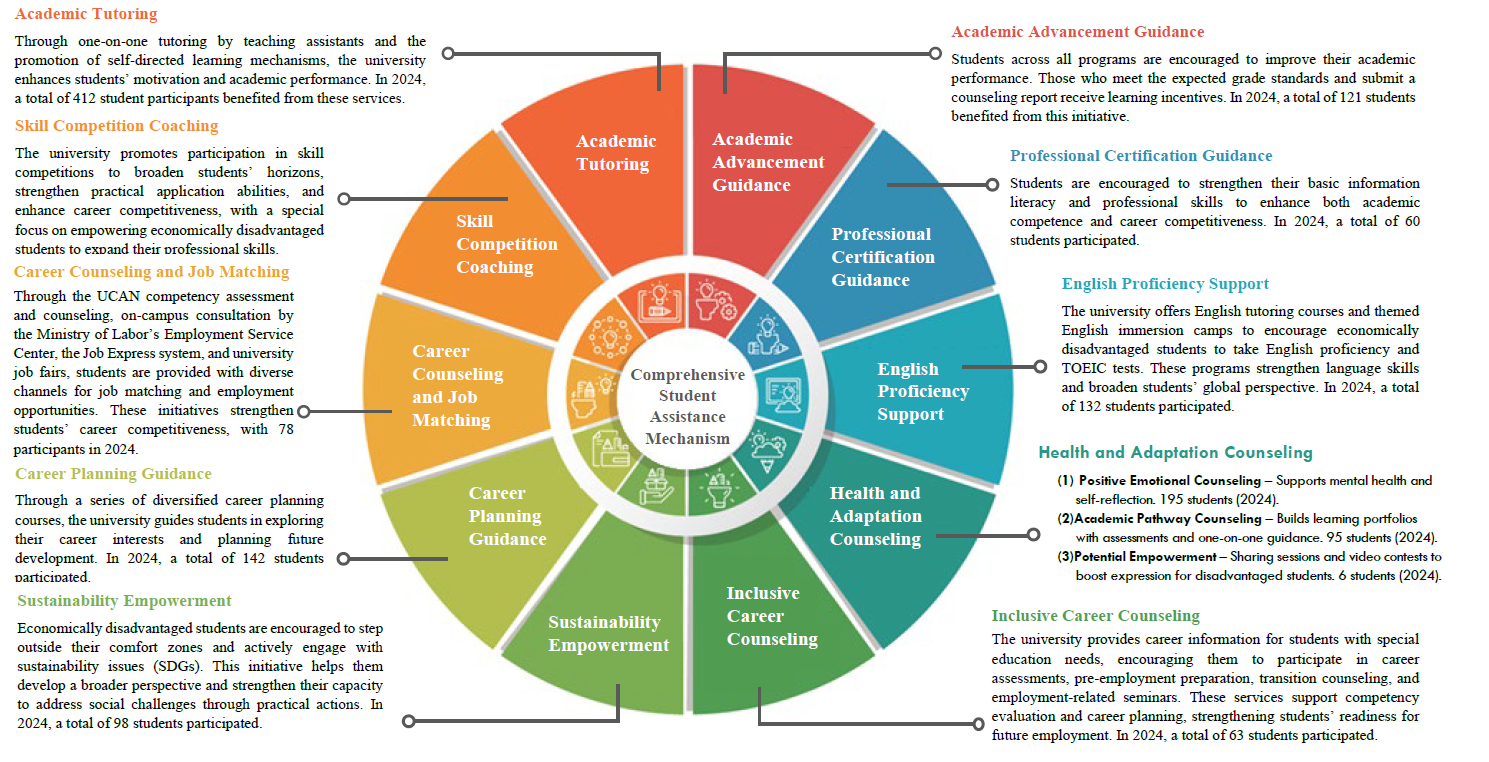
|
▲One-on-One Tutoring |
▲Self-Directed Learning Support |
To encourage diverse learning, enhance professional skills, and broaden global perspectives, the university provides various scholarships and has established guidelines for supporting disadvantaged students. Assistance includes scholarships, living allowances, emergency relief funds, and housing subsidies. In addition, annual allocations are made for work-study programs, allowing students to focus on both work and study without financial stress. In Academic Year 2023 (112), the total amount of scholarships and financial aid exceeded NT$74.64 million, including NT$24.91 million funded by the university, benefiting a total of 10,725 student applications.
Scholarship and Financial Aid Statistics, Academic Year 2023
|
Item |
Subsidy Amount |
Number of Beneficiaries |
|
Financial Aid:11 sub-categories, including: Disadvantaged Student Assistance Grants, Low-Income Student Aid, Aid for Students with Disabilities and Their Children, Unemployed Family Student Aid, Work-Study Grants, Indigenous Student Aid, International Student Aid, Living Allowances for Disadvantaged Students, Stable Education Support Grants, etc. |
43,493,847 |
5,080 |
|
Scholarships:18 sub-categories, including: Academic Excellence Scholarships, Student Leadership/Club Scholarships, Athletic Excellence Scholarships, “Stars Program” Admission Scholarships, Outlying Island Admission Scholarships, Military Program Scholarships, etc. |
19,858,439 |
4,398 |
|
Comprehensive Student Support Mechanism:12 financial aid sub-mechanisms for economically disadvantaged students. |
11,288,000 |
1,247 |
|
Total |
74,640,286 |
10,725 |
Special Education Resource Center
To support students with special needs in pursuing their studies with confidence, the university renamed its “Resource Classroom” to the Special Education Resource Center (SERC) in 2024. With the vision of being “A Home Away from Home,” the center provides a warm and welcoming learning environment, offering academic tutoring, counseling, career guidance, assistive devices, and resource coordination. It aims to foster independence and empower students to contribute to society after graduation. In 2024, the center assisted 64 students with special needs in completing their studies and successfully graduating.
The university’s special education planning centers on building a supportive community and creating an empowering environment. Since 2021, the “Dream Lab” has served as a career training and internship platform, helping students practice workplace etiquette and interpersonal skills. Through hands-on experience and continuous learning, students are better prepared for future employment.
|
▲Outstanding Learners Award – Class of 2024 |
Indigenous Student Resource Center
Founded in 2016, the Indigenous Student Resource Center (ISRC) upholds the values of respect, diversity, and sharing. It helps students strengthen academic skills, ensures a supportive learning environment, and promotes both individual growth and tribal development. In 2023, the university had 348 indigenous students, mainly from the Paiwan, Amis, and Bunun tribes.
|
Ethnic Group |
Number of Students |
|
Paiwan |
149 |
|
Amis |
106 |
|
Bunun |
36 |
|
Puyuma |
16 |
|
Rukai |
12 |
|
Atayal |
9 |
|
Truku |
7 |
|
Seediq |
4 |
|
Tsou |
3 |
|
Saisiyat |
2 |
|
Sakizaya |
2 |
|
Yami/Tao |
1 |
|
Thao |
1 |
|
Subtotal |
348 |
Strengthening Guidance and Support for Academic Success
Organized tea gatherings and club activities to explain indigenous resources and rights; provided counseling sessions to address individual needs; offered tailored certification courses in tribal language, English, and computer skills; and created on-campus work opportunities to holistically support learning and growth.
Promoting Indigenous Education for Rooted Competence
Hosted training in indigenous music and dance, lectures on contemporary and traditional issues, lawn concerts, and Indigenous Week activities. Faculty and students were encouraged to join, fostering cultural promotion, interschool exchange, and skill development.
Guiding Career Development and Workplace Readiness
In 2024, organized “Pulima Creative Workshop” tribal workplace visits and “Paloma Sower” career lectures to enhance innovation skills. Students also practiced micro-entrepreneurship through campus stalls, promoting indigenous products and DIY experiences while gaining hands-on business insights.
|
▲ 《 Masvala Peace》Indigenous Week |
▲ 《 Masvala Peace》Indigenous Week |
|
▲Community Service and Care in Home Villages |
▲Traditional Craft Learning – Trap Making |


